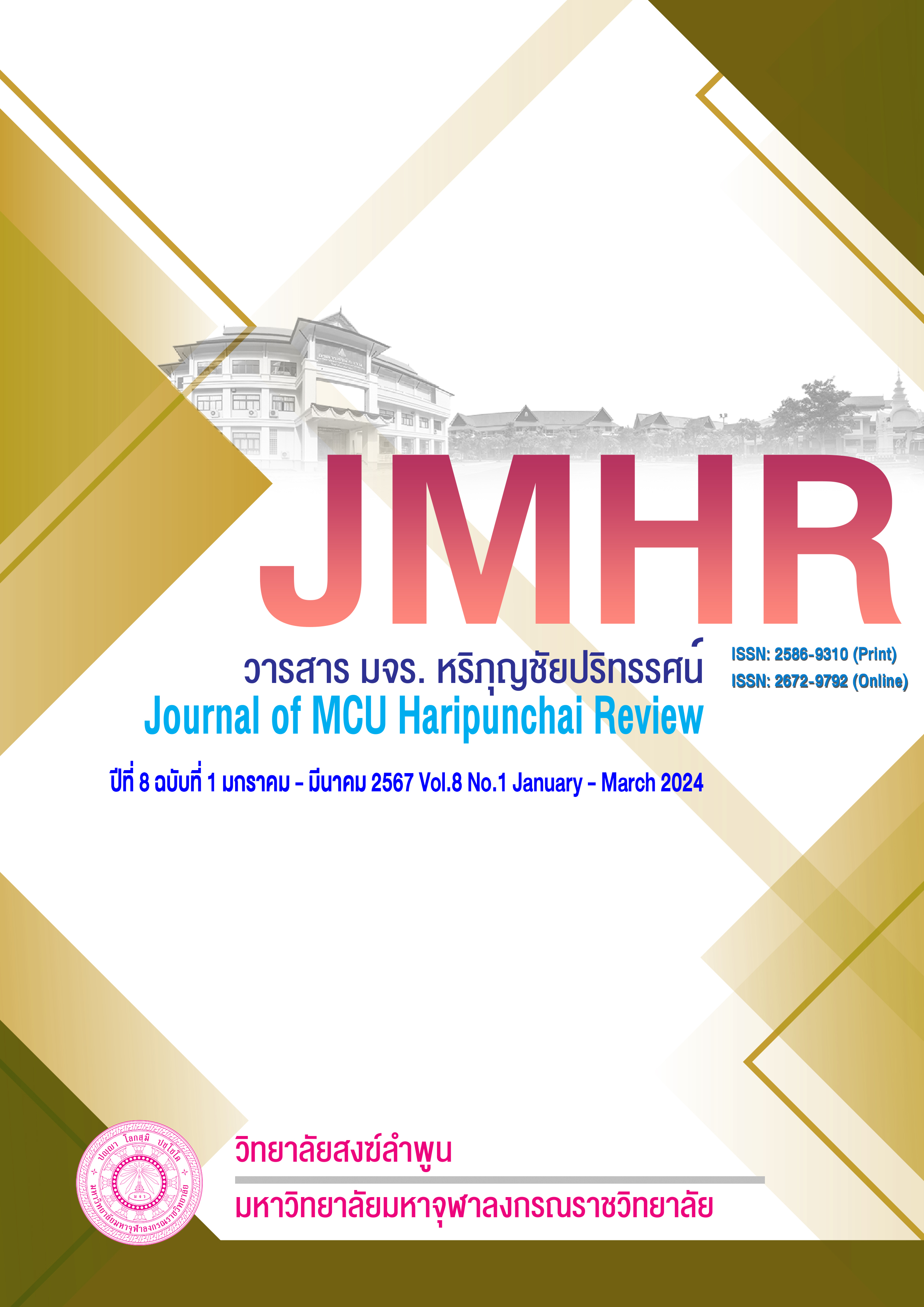Developing the Model of the Team Managing Focused on the Innovation of Professional Learning Community (PLC) to improve the efficiency of the general management of Ban Sala School under Chiang Mai Provincial Administrative Organization
Main Article Content
Abstract
This research aimed 1) to explore the state of general administration of Ban Sala School under Chiang Mai Provincial Administrative Organization, 2) to find the model for team management using the principle of PLC innovation, 3) to try out the model for team management using the principle of PLC innovation, and 4) to evaluate the development of team management model using the principle of PLC innovation to develop the effectiveness of general management of Ban Sala School under Chiang Mai Provincial Administrative Organization. This study was a research and development with 29 key informants and focus group of 8 people. The tools were interview, focus group, assessment of teamwork level before and after using the model and satisfaction assessment. Data were analyzed using basic statistics, mean and standard deviation.
The research results showed that:
- The general administration of the school had much strength, but there was still the point that should be developed and could team management using the principle of PLC innovation to improve the general management effectiveness.
- The model of team management using the principle of PLC innovation had been accepted by experts. There were 4 steps: Plan-Do-Check-Act and SC-Model that consisted of S: Supportive & Shared leadership, C: Collective learning and application of learning and Professional Learning Community
- The experiment of the team management model using the principle of PLC innovation with target groups in Ban Sala School during August 2022.
- The evaluation results of the team management model using the principle of PLC innovation after using the model of working together as a team, there was overall a better improvement and the satisfaction at the high level.
Article Details

This work is licensed under a Creative Commons Attribution-NonCommercial-NoDerivatives 4.0 International License.
References
ธีระนันต์ โมธรรม, วาโร เพ็งสวัสดิ์ และเอกลักษณ์ เพียสา. (2564). ภาวะผู้นำของผู้บริหารที่ส่งผลต่อการเป็นชุมชนแห่งการเรียนรู้ทางวิชาชีพในโรงเรียนสังกัดสำนักงานเขตพื้นที่การศึกษามัธยมศึกษา เขต 22. วารสารบัณฑิตวิทยาลัย พิชญทรรศน์. 16 (3), 95-107.
พงษ์ดนัย เดชเดชาโชติ. (2565). การพัฒนากลยุทธ์การบริหารงานวิชาการด้วยกระบวนการชุมชนการเรียนรู้ทางวิชาชีพ (PLC) ของโรงเรียนมัธยมศึกษา สังกัดสำนักงานเขตพื้นที่การศึกษามัธยมศึกษา เขต 8. วารสารบัณฑิตศึกษา มหาวิทยาลัยราชภัฏสกลนคร. 19(84), 115-127.
วิจารณ์ พานิช. (2555). วิถีสร้างการเรียนรู้เพื่อศิษย์ในศตวรรษ ที่ 21. กรุงเทพมหานคร : มูลนิธิสดศรีสฤษดิ์-วงศ์.
วาโร เพ็งสวัสดิ์. (2553). การวิจัยพัฒนารูปแบบ. วารสารมหาวิทยาลัยราชภัฏสกลนคร. 2(4), 1-15.
สมเกียรติ สัจจารักษ์ นิพนธ์ บริเวธานันท์, อดุล นาคะโร, เอมอร นาคหลง, สุวิชา วิริยมานุวงษ์, และนัฏชฏารัตน์ ณ นคร. (2564). การจัดการเรียนรู้ผ่านชุมชนการเรียนรู้วิชาชีพ (PLC) ของโรงเรียนสาธิตมหาวิทยาลัยราชภัฏภูเก็ต ฝ่ายประถมศึกษา. วารสารศึกษาศาสตร์ มสธ. 14(1), 15-28.
เอกชัย บุญยาทิษฐาน. (2553). คู่มือวิเคราะห์ SWOT อย่างมืออาชีพ. กรุงเทพมหานคร : ปัญญาชน.
อภิสิทธิ์ อุคำ. (2563). รูปแบบความสัมพันธ์เชิงสาเหตุของปัจจัยที่ส่งผลต่อการเป็นชุมชนแห่งการเรียนรู้วิชาชีพของโรงเรียนประถมศึกษาสังกัดสำนักงานคณะกรรมการการศึกษาขั้นพื้นฐานในภาคตะวันออกเฉียงเหนือ. วารสารครุศาสตร์ปริทรรศน์ฯ. 7 (2), 65-78.
Krungsri Academy. (2564). Teamwork อย่างไรให้มีประสิทธิภาพ. [ออนไลน์]. แหล่งข้อมูล : https://www.krungsri.com/th/plearn-plearn/effective-result-of-perfectteamwork. [10 กรกฎาคม 2565].
Sergiovanni, T. (1998). Leadership as Pedagogy: Capital Development and School Effectiveness. Journal of Leadership in Education. 1 (1), 37-47.


